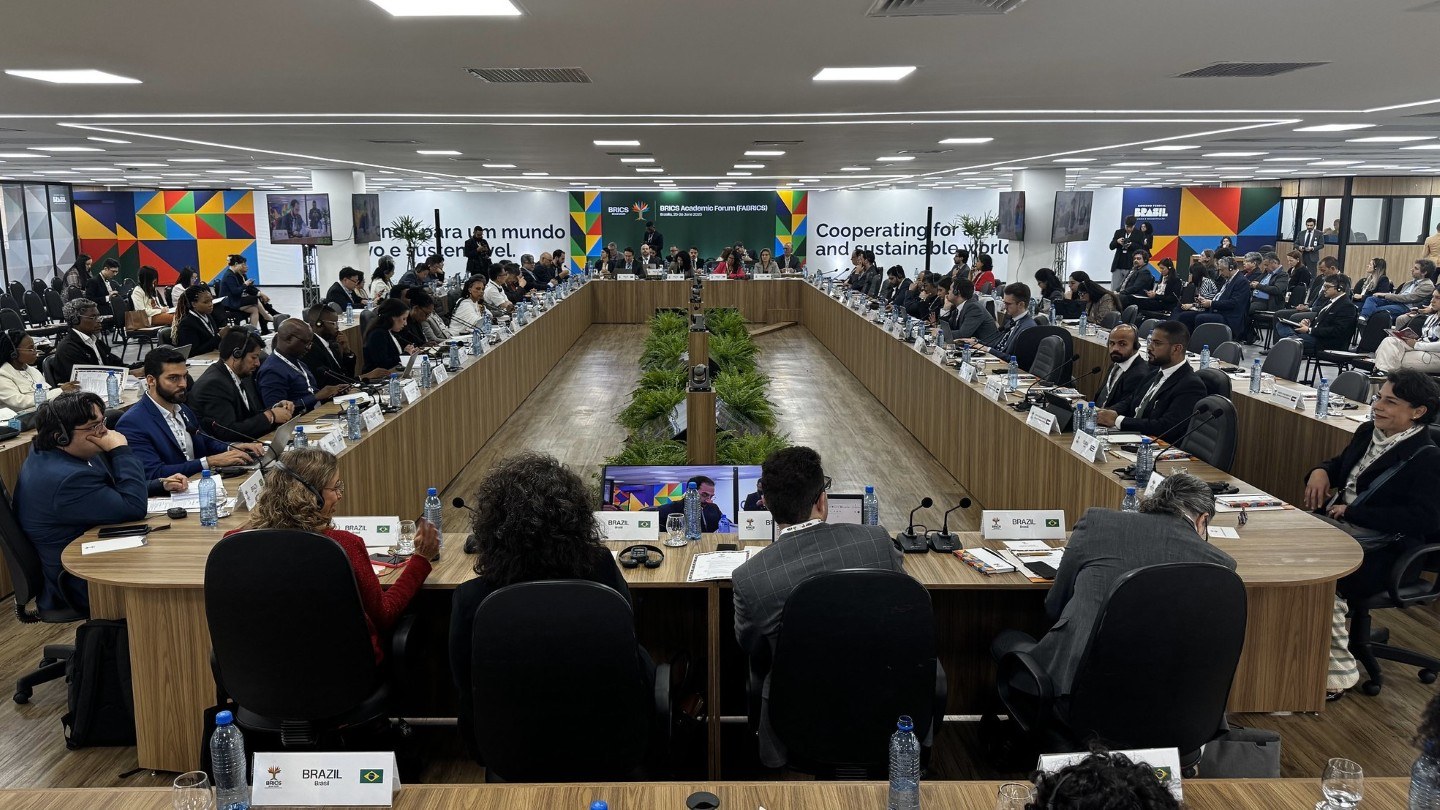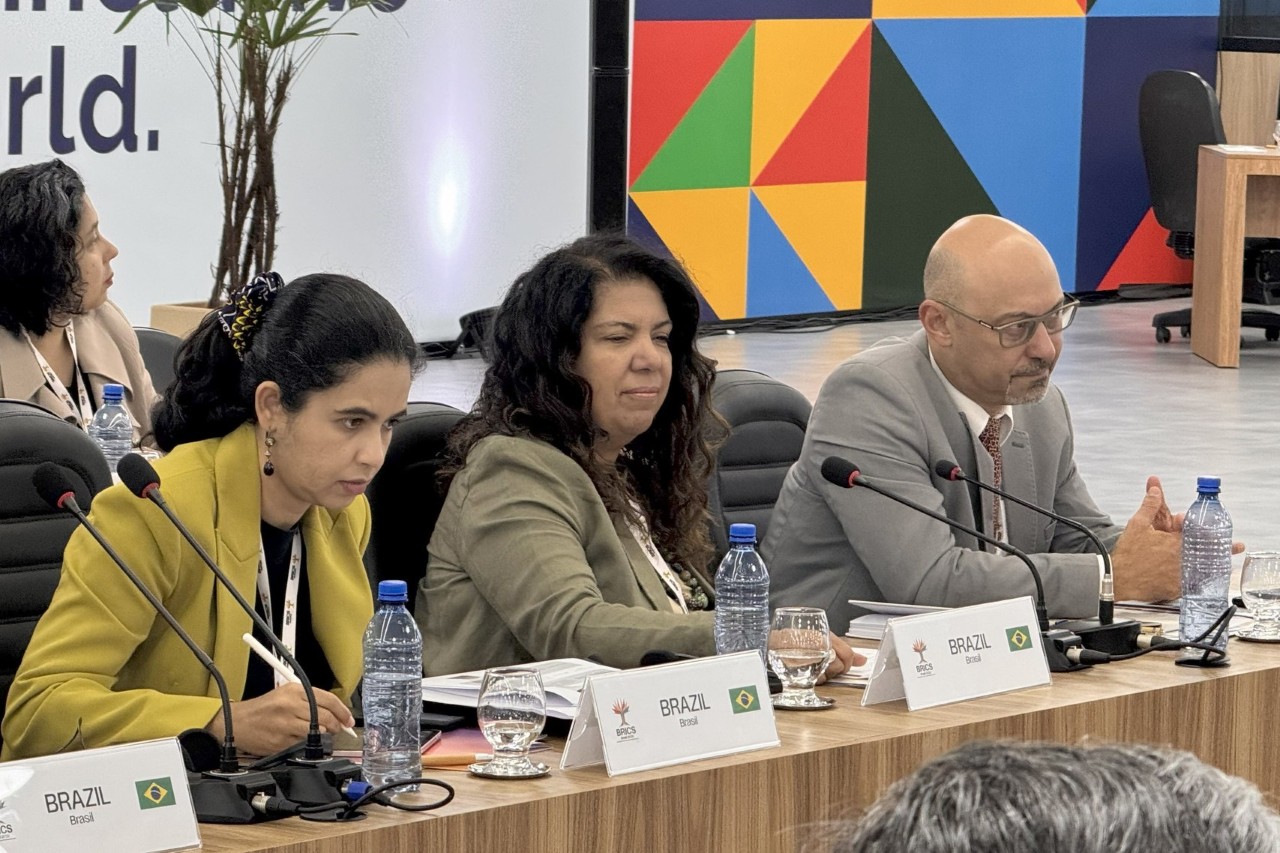BRICS Academic Forum unveils unprecedented portfolio mapping 180 cooperation mechanisms within the bloc
The document compiles key initiatives developed over the years to strengthen BRICS governance and guide countries that have recently joined or plan to join the group

By Leandro Molina | BRICS Brasil
The 17th BRICS Academic Forum took place in Brasilia on Wednesday and Thursday (June 25–26), bringing together experts from think tanks across nine countries to explore joint solutions to today’s most pressing global challenges. Held at the BRICS headquarters in the federal capital and coordinated by the Institute for Applied Economic Research (Instituto de Pesquisa Econômica Aplicada, Ipea), the event marked the beginning of a new cycle of debates under Brasil’s presidency, centered on six priority areas: global health, artificial intelligence, climate change, trade and finance, reform of international governance, and institutional development.
At the opening session, Luciana Servo, the Ipea President, highlighted the strategic role of BRICS as a platform for coordination among Global South countries. “In such a complex geopolitical landscape, such spaces become even more essential for the building of collective responses that reflect our shared priorities,” she stated. She further emphasized that the Forum represents “a unique opportunity for active listening, strategic reflection, and the collaborative construction of solutions that respond to Brazilian needs while reflecting the transformative spirit of BRICS.”
One of the key tangible outcomes of the meeting was the approval of a Portfolio of BRICS Cooperation Mechanisms, developed by the BRICS Think Tanks Council (BTTC) under Ipea's leadership. The document presents an unprecedented mapping of 180 cooperation mechanisms established by member countries since the group’s founding. The initiative aims to strengthen multilateral governance and the group’s joint action, particularly following its recent expansion. It includes a synthesis of key information on meetings, mandates, and the outcomes of thematic forums such as agriculture, finance, culture, youth, and security, with the goal of enhancing the group’s institutional cohesion and effectiveness.
View the Portfolio of BRICS Cooperation Mechanisms here
Keiti da Rocha Gomes, Director of International Studies at Ipea, explained that the work marks a milestone in the institutionalization of BRICS: “For the first time, we have a comprehensive overview of the many initiatives that make up the group’s architecture. This allows us to identify synergies, avoid duplication, and maximize our collective outcomes.” The preliminary document was presented during the closing session of the Academic Forum and will continue to be improved throughout the second half of the year.
Global health: cooperation that saves lives
The first day of discussions emphasized global health as a priority area, offering concrete examples of how cooperation within BRICS saved lives during the pandemic. João Miguel Estephanio, international advisor at Fiocruz, recalled that three of the group’s countries—China, Russia, and India—played a key role in the production of COVID-19 vaccines. “Technology transfer and the sharing of productive capacities within BRICS were essential to the protection of our populations,” he stated.
Discussions on artificial intelligence and digital trade revealed key areas of alignment among BRICS members. Dr. Samir Saran, President of India’s Observer Research Foundation, pointed to the parallels between Brasil’s Pix system and India’s UPI as examples of inclusive tech innovation. “Both platforms were built to serve millions—not just the elite. This view of technology as a driver of social development is a shared priority,” he said.
The Indian expert drew parallels between the two countries’ paths: “Just as Brasil has its Bolsa Família, we lifted 200 million people out of poverty in recent decades. Our social and economic priorities are remarkably aligned.” Saran argued that BRICS offers a “third way” for development: “We can build something unique—something that respects our diversity while advancing shared goals.”
Joint action beyond rhetoric

Sarah Mosoetsa, CEO of South Africa’s Human Sciences Research Council, emphasized the practical nature of cooperation within BRICS. “We have tangible results that improve people’s lives, such as the New Development Bank (NDB) and the regional vaccine center,” she said. The professor noted that the group’s expansion—with the inclusion of countries like Ethiopia—enhances its representativeness: “BRICS is not an academic conference, it is a platform for collective action,” she argued.
Mosoetsa underscored the symbolism of the present moment: “In a world fragmented by conflict, our group represents a concrete source of hope. The debates that took place showed that, despite our differences, we can reach consensus on the pathways leading to sustainable development,” she noted.
The BRICS Academic Forum also paid special attention to climate change and the reform of global peace and security architecture. Experts highlighted how extreme events—such as the floods in Rio Grande do Sul and droughts in Africa—require coordinated responses. Luciana Servo, from Ipea, noted that: “When we share experiences and solutions to these common challenges, we strengthen our national capacity for prevention and response”.
The final document of the meeting consolidates recommendations to be presented to BRICS leaders during the summit on July 5 and 6 in Rio de Janeiro. The declaration reflects the Forum’s spirit: a pluralistic space where Global South countries define the course of their strategic cooperation on an equal footing.
English version: Tadeu Azevedo (POET/UFC)
Proofreading: Enora Lessinger (POET/UFC)